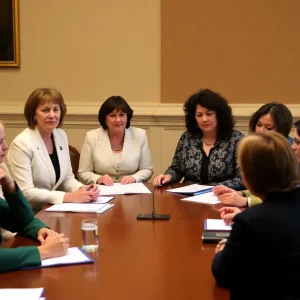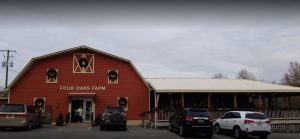Irmo, South Carolina: A New Chapter for a Former Afghan Governor
It’s not every day you meet someone who has lived through a major historical upheaval and come out on the other side in a new country. That’s exactly the story of Abdul Quayom Rahimi, who once served as the governor of two provinces in Afghanistan and now calls Irmo, South Carolina home. His journey, marked by intense challenges and profound loss, is one of resilience and hope.
From Kabul to Columbia
Just a few years ago, Abdul was navigating the complexities of political leadership in Afghanistan. In August of 2021, as the Taliban took hold, he found himself in a nightmarish situation where he was held captive, beaten and threatened. The memory of that day still lingers vividly in his mind.
“I thought this might be the end,” Abdul recalled, speaking from a law office where he now works. “I had fought alongside my men, and there I was, tied up and at the mercy of those who wanted to take my life.” His story is not just about personal survival; it reflects the collective grief and struggles of many Afghans who have fled to America.
A Home in South Carolina
Fast forward to today, and Abdul is working at a local Amazon warehouse, trying to make ends meet while waiting for his family to join him in the U.S. He has experienced many ups and downs since arriving in South Carolina. From navigating the complexities of American life to adjusting to cultural differences, the transition has not been easy.
“America is lonely,” he admitted, reflecting on how his community of Afghan refugees is scattered across the region, unlike the tightly-knit families back home. “Gatherings are smaller and less frequent. We’re trying to rebuild, but it feels different here.”
Unexpected Challenges
While many would assume that Abdul’s background as a governor would make job hunting easier, he quickly discovered that his experiences did not always translate well to the American job market. Navigating the nuances of job applications and securing work without a local credit history has proven challenging. “You have to do two or three jobs just to make it work,” he said, underscoring the financial pressures that come with starting over.
Many Afghan refugees face similar hurdles; adjusting to new traffic laws, understanding the importance of specific dates, and overcoming language barriers can feel overwhelming. Abdul recalls that something as mundane as a beep from a security alarm can send shivers down the spines of those with a background filled with chaos and bombardment. “In Kabul, when you hear that sound, there’s often a bomb blast following it,” he explained.
Finding Purpose Again
Despite these hurdles, Abdul is not just surviving; he is channeling his experiences into helping others. He has begun working on a nonprofit aimed at supporting Afghan refugees in Columbia, focusing on reintegration and legal assistance—skills he acquired while working in various capacities in Afghanistan.
His initiative, Our Refuge 91, aims to provide a platform for storytelling, sharing, and support among the Afghan community. “It’s essential to help each other; we have shared experiences that can make us stronger together,” he emphasized.
The Road Ahead
As he looks to the future, Abdul remains hopeful. He dreams not only of establishing a strong life for himself and his family in Irmo, but also of returning to Afghanistan one day. He is part of a group of former leaders and military personnel who are determined to see their home freed from the clutches of the Taliban. “We all miss our homeland fiercely,” Abdul said, “but we also want to see it free and flourishing again.”
While his journey has been filled with pain and dislocation, Abdul Quayom Rahimi’s resilience shines through. His story is a reminder that even amid uncertainty, where there’s a will, there’s indeed a way forward. Whether through his work, his family, or his new community, Abdul is carving out a fresh path—a testament to the human spirit’s ability to endure and thrive.









